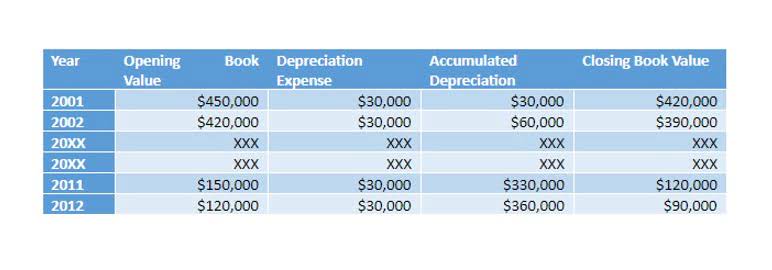
The decentralized nature of the industry sees production scattered, occurring in multiple locations. This causes mobilization costs from frequently moving equipment and people from site to site. Every job site needs to be tracked in terms of equipment and varying labor wage rates. Withholding retainers can further delay payment, which is why it’s important to accurately track costs and have funds available for shorter pay periods. Payment scheduling and collection are subject to different circumstances in the construction industry, making proper bookkeeping essential.

Select Revenue Recognition Methods

It helps track expenses, manage cash flow, and make informed financial decisions. However, bookkeeping for construction companies can be complex and challenging. It requires an understanding of unique accounting principles and regulations specific to the industry. Another vital report is the accounts receivable aging report, which tracks outstanding invoices and helps ensure timely payments from clients.
- Retainage is a portion of the contract payment withheld until a project’s completion to ensure the contractor fulfills all obligations.
- Because of this, contractors are free to concentrate on what they do best rather than spend time on administrative duties.
- Cash flow is the lifeblood of any construction business, but many companies struggle to manage it effectively.
- It is a cloud-based solution that can help you scale your business by having the right data at your fingertips.
- Job costing is a process that helps you determine the costs of working on a project.
- We wish to establish the foundation of a long-term relationship by giving you the opportunity to personally experience and assess our bookkeeping service and procedure.
Automate Invoicing and Expense Tracking
Our construction accounting team ensures seamless integration with existing workflows, QuickBooks provides real-time data insights, and ensures compliance with industry standards. Contact us today to streamline your construction accounting and enhance project financial management with our construction bookkeeping solutions. QuickBooks is a comprehensive accounting software solution tailored for small and medium-sized businesses, including the construction industry.
Utilizing Accounting Software
By collaborating with them, you can free up your time and resources to focus on growing your business while they manage the financial aspects with precision and accuracy. Additionally, they can provide valuable insights into your business’s financial health and performance, helping you make informed decisions to optimize your operations and maximize your profits. Embracing the idea of outsourcing bookkeeping services can prove to be an efficient choice for construction companies aiming to optimize their time and resources. By outsourcing, your business can reap numerous advantages such as tapping into a wealth of expert knowledge, streamlining processes for better efficiency, and cutting down on overhead expenses. Generate regular financial reports, including profit and loss statements, balance sheets, and cash flow statements, to get a clear picture of your company’s financial health. Begin by organizing your finances with a chart of accounts tailored to the construction industry.
How Planyard Simplifies Bookkeeping for Construction Companies
This software is best for those who manage construction projects on real estate bookkeeping services for homebuilders that they own or lease. Each plan offers the basics needed to run your construction business, including scheduling, daily logs and a to-do list. See if you’re on track with the report designer that allows you to customize construction reports and financial statements. Conduct an audit of a project that will build a report easy for your certified public accountant (CPA) to digest and work from. This is best for any contractor looking for a comprehensive, ready-to-use solution for accounting and project management. Project management is critical to meeting budgets on your construction sites.

Construction billing is unique

We offer a broad range of services for business owners, executives, and independent professionals. Chris combines his experience in tech and construction to build products that actually help SMB contractors improve and streamline their business operations. Avoiding penalties for noncompliance is much easier with accurate financial records. There are several laws that the construction business must adhere to, including those about licensing, insurance, and safety. Companies can avoid fines and other legal trouble by maintaining accurate books and proving they align with these rules.
Improving your process starts with understanding how construction accounting is unique, and determining the different types of job costs you can incur on each project. Accounting is an essential part of running a successful construction business. However, managing your business finances correctly doesn’t always come naturally—especially if you’re not much of a numbers person. What’s more, accounting for construction company finances has some unique challenges compared to other types of businesses. Using Hubstaff’s time tracking app for construction businesses, you can automatically generate time cards for your workers. This ensures payroll receives accurate data for the time workers spend on-site, as well as time spent traveling.

Finance & Accounting Related Services
- A tax professional can help construction companies identify tax deductions and credits that they may be eligible for, which can help reduce their tax liability.
- Construction payroll is more complex than in many other industries, as it involves tracking multiple workers, contractors, and varying pay rates.
- The software makes invoice routing easy and conveniently reconciles things with the GL when paid.
- As the sector continues to grow, so does the need for robust accounting solutions.
- However, maintaining consistency over time is crucial to ensure accurate financial reporting and compliance.
Your company may manage short- and long-term contracts, often with varying end dates. To stay on top of cash flow and keep your books in check, you will need a flexible yet organized construction accounting system. Construction projects are usually governed by contracts that can vary widely in terms of payment structures—such as fixed-price, cost-plus, or time and materials contracts. These contractual arrangements significantly influence how revenue is recognized in construction accounting. Change orders often arise during https://www.bookstime.com/blog/how-to-do-bookkeeping-for-cleaning-businesses construction, requiring real-time adjustments to project budgets.